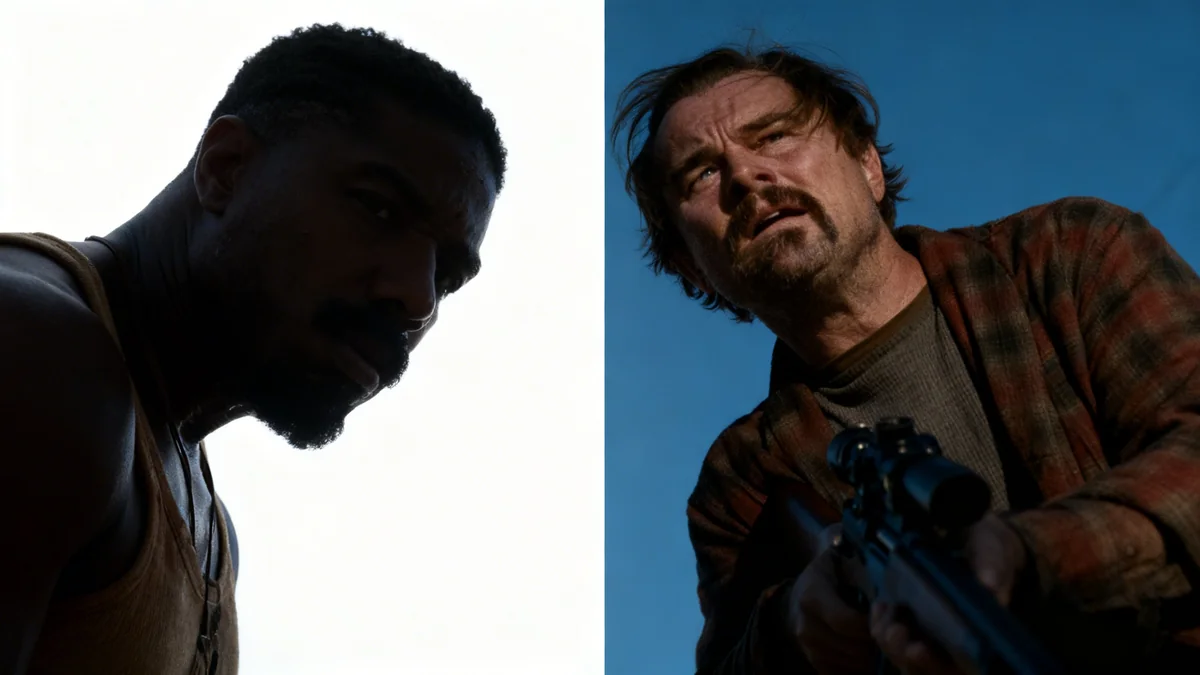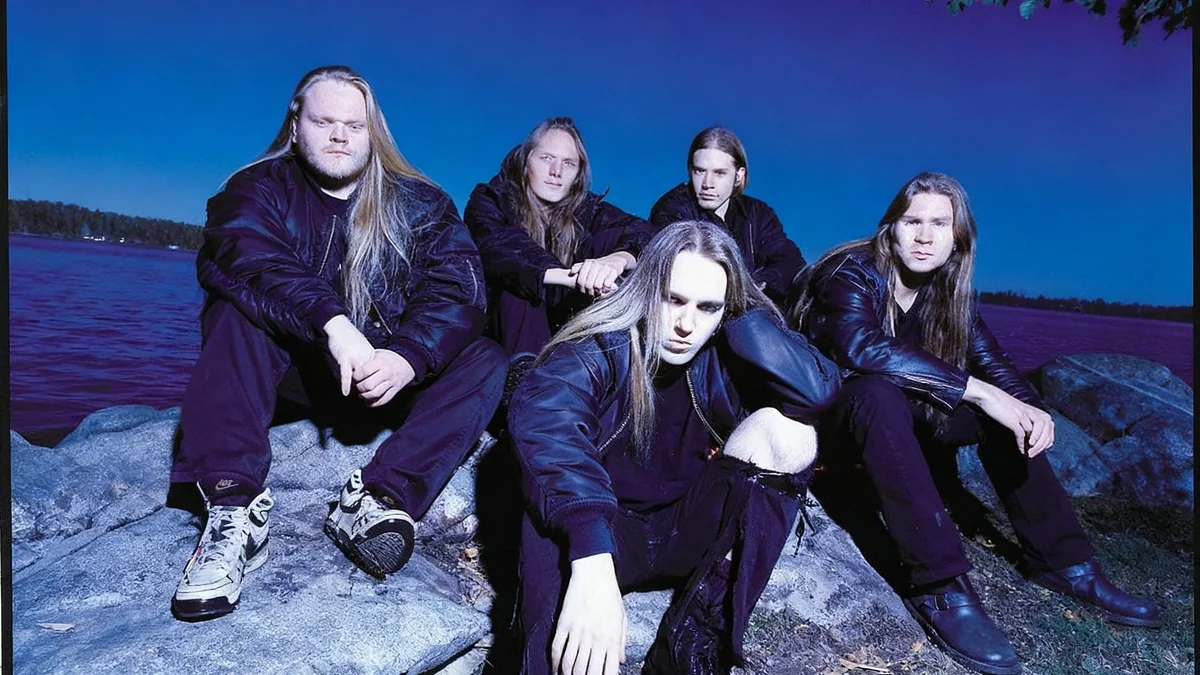Uriah Heep, a British hard rock band, experienced significant success in the 1970s, achieving transatlantic recognition with albums like Return To Fantasy. However, their journey was marked by severe internal conflicts, substance abuse, and personality clashes that ultimately hindered their potential to reach the heights of their contemporaries.
Key Takeaways
- Uriah Heep achieved early success with a unique blend of hard rock and progressive elements.
- Substance abuse, particularly alcoholism and heroin addiction, significantly impacted band members and performances.
- Personality clashes and songwriting disputes created deep divisions within the group.
- Manager Gerry Bron played a central but controversial role in the band's development and eventual decline.
- The band's original lineup saw multiple changes due to these internal issues, affecting its long-term trajectory.
Early Success and Growing Tensions
In August 1975, Uriah Heep prepared to perform at Philadelphia’s Spectrum arena. Their eighth album, Return To Fantasy, had brought them critical and commercial success, achieving a UK Top 10 position. The venue was sold out, with 25,000 fans eager to see the band. This period represented a peak in their public image, a moment when they appeared to be at the top of their game after six years of hard work.
Behind the scenes, the situation was far less stable. Deep rifts and personal issues were tearing the band apart. Alcohol and drug problems exacerbated these tensions. Earlier that year, bassist Gary Thain had been dismissed due to a severe heroin addiction. He tragically died months later from drug-induced respiratory failure at the age of 27. John Wetton, formerly of Family and King Crimson, replaced him.
Fact: Uriah Heep's Debut
Uriah Heep's 1970 debut album, Very 'Eavy... Very 'Umble, was produced by Gerry Bron and achieved minor commercial success despite negative critical reviews, including one from Rolling Stone magazine.
David Byron's Struggles and Departure
Lead singer David Byron was a central figure in these escalating problems. His alcoholism began to affect his performances and personal life. During the Philadelphia concert, Byron, heavily intoxicated, stumbled into a microphone stand, cutting his lip. Mistaking the audience's cheers for laughter, he reacted by cursing at them. This incident shocked both band members and the crowd.
"I was embarrassed for David and for us," recalled keyboard player Ken Hensley. "When your lead singer curses out an entire audience what do you do? He was pissing my career down the toilet as well as his own."
Guitarist Mick Box also remembered the embarrassment. "I was tuning my guitar at the time and couldn’t bring myself to turn around and face the audience," he stated. The incident prompted Hensley to temporarily leave the tour, though he later returned after manager Gerry Bron intervened. This event marked a turning point for Byron within the band.
The Role of Manager Gerry Bron
Gerry Bron was a pivotal and often controversial figure in Uriah Heep's story. He discovered the band, then known as Spice, and became their manager, producer, and later, their record label boss with Bronze Records, founded in 1971. Bron was older and more experienced, having worked with other notable bands.
Bron’s influence extended to the band's name change to Uriah Heep, inspired by a classified ad. He also played a key role in bringing keyboardist Ken Hensley into the lineup, a move that proved crucial for the band's sound and songwriting direction. Hensley's Hammond organ style complemented Byron's vocals and Box's guitar work, enhanced by multi-part vocal harmonies.
Background: Formation and Early Days
Uriah Heep originated from a collaboration between Mick Box and David Byron. They were first in a band called The Stalkers, then Spice. Gerry Bron discovered Spice at a gig in High Wycombe, leading to their management deal and eventual transformation into Uriah Heep.
Creative Dynamics and Disagreements
The band's sound solidified with albums like Demons And Wizards and The Magician’s Birthday, both released in 1972. These albums featured a new rhythm section: New Zealand-born bassist Gary Thain and aggressive drummer Lee Kerslake. Both contributed to the band's distinctive multi-layered vocal harmonies.
Despite this creative peak, factions began to emerge. Ken Hensley, a prolific songwriter, increasingly dominated the writing process. Five of the eight songs on The Magician’s Birthday were written solely by Hensley. This led to resentment among other band members, particularly Mick Box and Lee Kerslake, who felt their contributions were being sidelined.
"Kenny was an absolute genius as a writer," said Lee Kerslake. "But when he brought in a song the rest of the band tore it apart, put it back together and made it what it was. He couldn’t have done it without the knowledge and talent of each member of the band."
Hensley's greater songwriting credits also meant higher royalties, which he openly displayed, further fueling tensions. "If I had a new car, I’d show it off," Hensley admitted. This financial disparity added to the friction, as did perceived ego issues from Gerry Bron. Kerslake claimed Bron once stated, "I am Uriah Heep, and what I say goes." Bron, however, defended his position, stating he built the band.
Escalating Problems and Tragic Outcomes
The band's decision to record their 1973 album, Sweet Freedom, in France and 1974's Wonderworld in Germany proved problematic. David Byron's drinking worsened, and Gary Thain's heroin addiction became more severe. Mick Box recalled witnessing Byron's dangerous behavior in Munich, nearly being hit by cars while carrying champagne cocktails.
The band attempted to address Byron's issues, but their own struggles with alcohol and cocaine made it difficult. "Demanding that he stop would have been hypocritical," Lee Kerslake noted. Byron's behavior grew increasingly erratic. During the Wonderworld sessions, he broke an unwritten rule by drinking while tracking vocals. He was even found crawling on the studio floor, trying to reach a whisky bottle.
Statistic: Album Releases
Between 1972 and 1976, Uriah Heep released six albums, including the highly acclaimed Demons And Wizards and The Magician’s Birthday, solidifying their place in 1970s rock.
The Downfall and Aftermath
Gary Thain's health deteriorated significantly during the Wonderworld tour. Stories circulated of him being carried onto flights due to his addiction. He left Uriah Heep in January 1975 and died of a heroin overdose in December of that year, aged 27. His death deeply affected the band, with Ken Hensley admitting to a cocaine binge in response.
David Byron's situation also worsened. An incident in Harrisburg, Pennsylvania, saw him collapse in his hotel room due to intoxication, suffering a deep head wound. He likely would have bled to death had a fan not found him. Despite these severe episodes, Byron showed no signs of wanting to change. "David refused to be helped," Lee Kerslake stated. "On one occasion he slapped me round the face, kicked and screamed at me. We couldn’t take it any more."
In June 1976, following a Spanish tour, David Byron was officially dismissed from Uriah Heep. He played his final show in Bilbao, Spain, reportedly kicking in the venue's front door. Bron stated the decision was made "in the best interests of the group." Byron himself expressed relief, citing the internal conflicts and Hensley's songwriting dominance as factors tearing him apart.
Legacy and Enduring Impact
Uriah Heep continued after Byron's departure, with John Lawton replacing him. Subsequent albums like Firefly and Innocent Victim kept the band's name alive, particularly in Germany. However, the golden era was over. Gerry Bron felt that without Ken Hensley, David Byron, or Gary Thain, the band had lost its core. Mick Box and Trevor Bolder attempted to bring Byron back for the 1982 album Abominog, but Byron's addiction was too severe.
David Byron never overcame his personal struggles. He died on February 28, 1985, at his home in Reading, with alcohol-related complications cited as the cause of death. He was 38 years old. Bron expressed regret over the sacking but questioned what alternative action the band could have taken.
Today, Mick Box remains the sole original member of Uriah Heep, continuing to tour and record. The band experienced a period of stability from 1986 to 2007 with a consistent lineup. Despite the bitterness and personal tragedies, Box acknowledges the contributions of past members like Bron and Hensley. He often reflects on the band's loyal fanbase, who share deeply personal connections to Uriah Heep's music.
"We have a loyal and still-growing fan-base that often thanks us for providing the soundtrack to their lives," Box concluded. "Our catalogue is played at births, weddings, funerals and milestones in between."
Ken Hensley, who passed away in 2020, once modestly reflected on the band's journey: "I’m very proud that we took a fairly flimsy amount of talent and a lot of determination and created something huge." He admitted the band's eventual collapse was due to non-musical reasons, a source of disappointment. The story of Uriah Heep remains a complex narrative of immense talent, commercial success, and the destructive power of internal strife and addiction.




